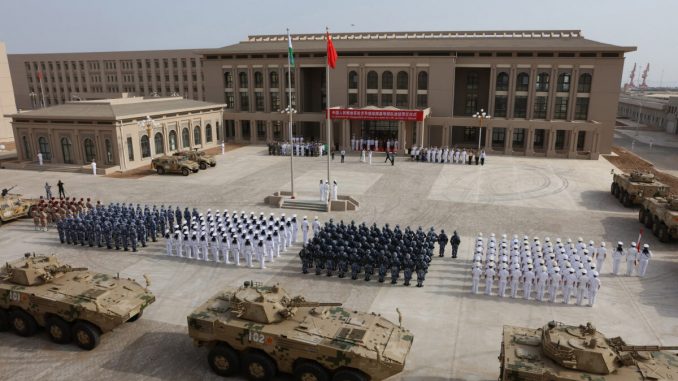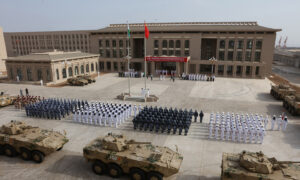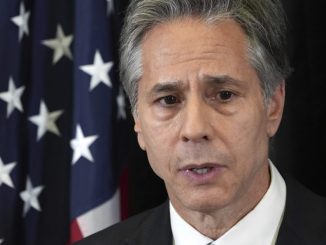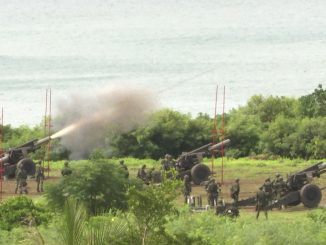

China’s ability to project its naval power in the Indian Ocean, as well as its continued build-up of the nuclear arsenal, is of great concern to the United States, said two top U.S. military officials in recent congressional hearings.
Beijing’s naval power now includes aircraft carriers after China has modernized its military base in Djibouti on the Horn of Africa, according to Gen. Stephen Townsend, the head of U.S. Africa Command.
“Their first overseas military base, their only one, is in Africa, and they have just expanded that by adding a significant pier that can even support their aircraft carriers in the future. Around the continent, they are looking for other basing opportunities,” Townsend told the House Armed Services Committee on April 20.
Beijing opened its base in Djibouti in 2017 and it sits just 7.4 miles (12 kilometers) from Camp Lemonnier, which is home to about 4,500 American military personnel and the primary base of operations for U.S. African Command. Several other countries also have a base in Djibouti, including France, Japan, and Italy.
The presence of so many different military bases is due to Djibouti’s strategic location—it sits next to the Bab-el-Mandeb Strait separating the Gulf of Aden and the Red Sea, the latter is the gateway to the Suez Canal. About 12 percent of world trade passes through the Suez Canal every day.
Currently, China has two aircraft carriers—the Liaoning and the newer Shandong—and is building a third one. In January, China’s state-run media reported that the construction of the third carrier is expected to be completed before the end of this year.
Chinese military officials have publicly denied that its Djibouti base was intended for “military expansion” and claimed that the base was needed to support anti-piracy and humanitarian relief missions.
However, Abhijit Singh, a former Indian naval officer and head of maritime policy at the Observer Research Foundation in New Delhi, said that China’s Djibouti base “most vividly demonstrates China’s Indian Ocean ambitions” in his article published in India’s newspaper ThePrint in June last year.
The Chinese regime has other ambitions in Africa. Townsend told the committee that China “very much ha[s] the intent to establish additional overseas bases in Africa, whether that be on the Atlantic coast of Africa or the Indian Ocean coast of Africa.”
“China is of great concern. They are literally everywhere on the continent. They are placing a lot of bets down. They are spending a lot of money,” Townsend added.
At another congressional hearing on Tuesday, Navy Admiral Charles Richard, the head of the U.S. Strategic Command, which oversees the country’s nuclear weapons, told the Senate Armed Services Committee that China’s nuclear stockpile was undergoing an “unprecedented expansion,” according to his opening testimony (pdf).
The Stockholm International Peace Research Institute, an independent international institute based in Sweden, reported last year that China had an estimated 320 nuclear warheads in its arsenal as of January 2020.
As for how fast China was developing its nuclear capabilities, Richard told the committee: “I can’t get through a week right now, without finding out something we didn’t know about China.”
Richard pointed to China’s advancement in developing fast breeder reactors (a type of nuclear reactor) as an example of “how rapidly China is changing, or at least how rapidly we’re figuring it out.”
China, the world’s largest coal emitter, is pushing for the development of these advanced fast reactors to reduce its dependence on coal. A fast reactor makes more fissile materials like plutonium than it consumes, meaning that a large amount of these materials could potentially be diverted into making nuclear weapons. China is expected to roll out its first fast reactor in 2023.
“With a fast breeder reactor, you now have a very large source of weapons-grade plutonium available to you. That will change the upper bounds of what China could choose to do, if they wanted to in terms of further expansion of their nuclear capabilities,” Richard said.





Be the first to comment